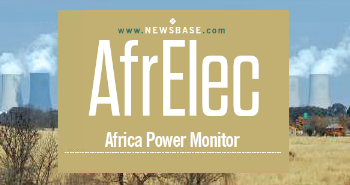Africa's energy ambitions stifled by investment shortfall

Africa's pursuit of economic and social development hinges on access to affordable, reliable and sustainable energy. Despite vast energy resources, the continent remains energy poor, with around 600mn Africans lacking electricity and over 1bn relying on traditional stoves for cooking. This energy deficiency exacerbates health issues, hinders educational progress and stifles economic growth, particularly affecting women and children, the International Energy Agency (IEA) said in a recent report.
Africa, accounting for 20% of the world's population, attracts less than 3% of global energy spending. Since peaking in 2014, energy investment on the continent has dropped by 34%. Barriers to investment include a lack of bankable projects and the high cost of capital, which is two to three times higher for renewable projects in Africa compared to advanced economies. Additionally, 21 African countries face significant debt distress, further complicating investment prospects.
The International Energy Agency (IEA) asserts that meeting Africa's growing energy demands necessitates a more than doubling of annual energy investment by 2030, with three-quarters directed towards clean energy. The IEA’s Sustainable Africa Scenario, part of a report commissioned by Italy’s G7 Presidency, outlines a pathway to achieving Africa's energy goals, aligning with the African Union’s Agenda 2063. This scenario envisions energy investment in Africa rising to almost $240bn annually by 2030.
“Extending access to electricity and clean cooking remains the most important lever for growth and development,” the IEA states. Achieving universal access requires $22bn per year for electricity and $4bn per year for clean cooking solutions from 2023 to 2030. However, affordability remains a challenge, with only half of households currently without electricity able to afford basic energy services without financial support.
Private companies in Africa are offering innovative energy solutions, yet scaling these requires more financing and specialised incentives, particularly to reach rural areas. Recent multilateral efforts have mobilised $2.2bn in new funding for clean cooking initiatives, reflecting a growing political commitment to energy access.
The IEA report highlights that around half of the required energy investment in Africa to 2030 is needed in the electricity sector. In the Sustainable Africa Scenario, total electricity sector investment is projected to increase from $30bn in 2022 to over $120bn in 2030, with about 50% allocated to renewable generation. Africa possesses 60% of the world’s best solar resources and significant potential for hydropower, geothermal, and wind energy.
However, perceived investment risks in less developed markets, where three-quarters of Africans live, remain high. Regulatory reforms, including concessional agreements and tariff adjustments, are essential to attract new capital to debt-distressed utilities. The report stresses that private sector spending must grow 2.5 times from 2022 levels to meet Africa’s energy investment needs, with $190bn of private capital required by 2030. Concessional capital from international sources will be crucial, with an estimated $30bn per year needed to mobilise commercial funding for clean energy projects over the next seven years.
“Africa's energy future depends on overcoming these investment hurdles,” the IEA emphasises, underscoring the critical role of both public and private sectors in achieving the continent’s ambitious energy and development goals.
This article first appeared at Newsbase.com, a global energy publication that covers the major oil, gas, LNG, power and renewables developments from around the world on a daily basis. Contact sales@intellinews.com if you would like a free two-week trial to Newsbase.



Follow us online